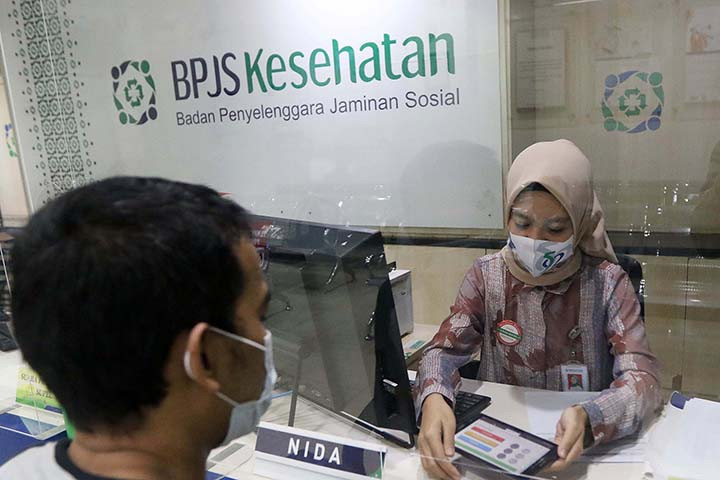Popular Reads
Top Results
Can't find what you're looking for?
View all search resultsPopular Reads
Top Results
Can't find what you're looking for?
View all search resultsRaising the alarm for BPJS
In a desperate attempt to control its worsening deficit, BPJS Kesehatan made several attempts to remove drugs for cancer.
Change text size
Gift Premium Articles
to Anyone
A
fter experiencing slow times during the pandemic, which resulted in a revenue surplus, the Healthcare and Social Security Agency (BPJS Kesehatan) slipped back into financial distress again last year.
As people began to flock to hospitals and healthcare centers again, National Health Insurance (JKN) claims started to pile up for the non-profit agency, resulting in a deficit of Rp 7.4 trillion (US$473.8 million), or 4.8 percent of the total premium payments by members last year.
The deficit is expected to rise to a record high this year as the number of people covered by the insurance amounts to more than 267 million, more than 95 percent of the population. With the large number of people to cover, the insurer faces greater potential for higher claims and more challenges in regard to premium collection.
Indonesia rolled out the JKN insurance under BPJS Kesehatan in 2014 in an attempt to provide universal health coverage for its people. The large population covered under the scheme made the JKN the largest single-payer health insurance system in the world in 2021, according to medical journal Lancet.
The national health scheme is funded by the government at national and regional levels to cover the poor, low-income families and retired government employees, which altogether account for about 54 percent of JKN members. Social contributions for workers, paid jointly by employees and employers, also play a significant role as they account for 20 percent of the health scheme. Members who work in the informal sector or are self-employed register themselves for the insurance independently, and account for the remaining 26 percent of the JKN coverage.
Prior to the pandemic, BPJS Kesehatan became embroiled in a constant deficit because of mismanagement and an insufficiency of healthcare providers. The lack of implementation of standards of medicines and health services led to poor judgment by hospitals and doctors in allocating the services, leading to soaring claims and medicine scarcity for critical diseases.
In 2016, a study by the University of Indonesia (UI) uncovered potential fraud in the JKN’s hospital claims costing as much as Rp 7 trillion. Among the irregular claims from hospitals were an abnormally high number of babies delivered via C-section under the JKN, about 54 percent of 1.5 million babies delivered from January 2014 to July 2015. The unusually high prevalence of this procedure, which normally should be fewer than 10 percent of total child births, increased substantially the sums that had to be paid out by BPJS Kesehatan.
In a desperate attempt to control its worsening deficit, BPJS Kesehatan made several attempts to remove drugs for cancer, including trastuzumab, bevacizumab and cetuximab, from its coverage list. Cancer treatment has been recorded as the second-largest source of claims by the insurer after cardiovascular illnesses. It returned trastuzumab, a chemotherapy drug for breast cancer, to the list in 2018 after facing a civil lawsuit from a patient.
Moving forward with wider coverage, health regulators, including the Health Ministry and the National Social Security Council (DJSN), must move swiftly to ensure compliance in premium payment by members. As social contributions still support almost half of the health insurance scheme, failure to pay will land BPJS Kesehatan in more trouble.
BPJS Kesehatan supervisory board chairman Abdul Kadir said one of the problems that the insurance provider encountered last year was that around 53 million members did not consistently contribute financially. This resulted in the growth of total claims last year outpacing the total premiums collected from members.
Another policy that regulators can consider is cost efficiency for inpatient care. Currently, the insurer offers three classes of service for JKN members who are willing to pay higher premiums. It may be better for it to standardize inpatient service so that it can allocate more money for treatment of patients with critical diseases.
It is after all important for the government to campaign and support healthy lifestyles to keep people away from the doctor. With more people climbing into the middle-income bracket, the government can direct people toward a better diet.
Higher excise on cigarettes or taxes on sugary drinks and fast food may also be effective in supporting the country’s bid to develop a healthy population, physically and mentally.











